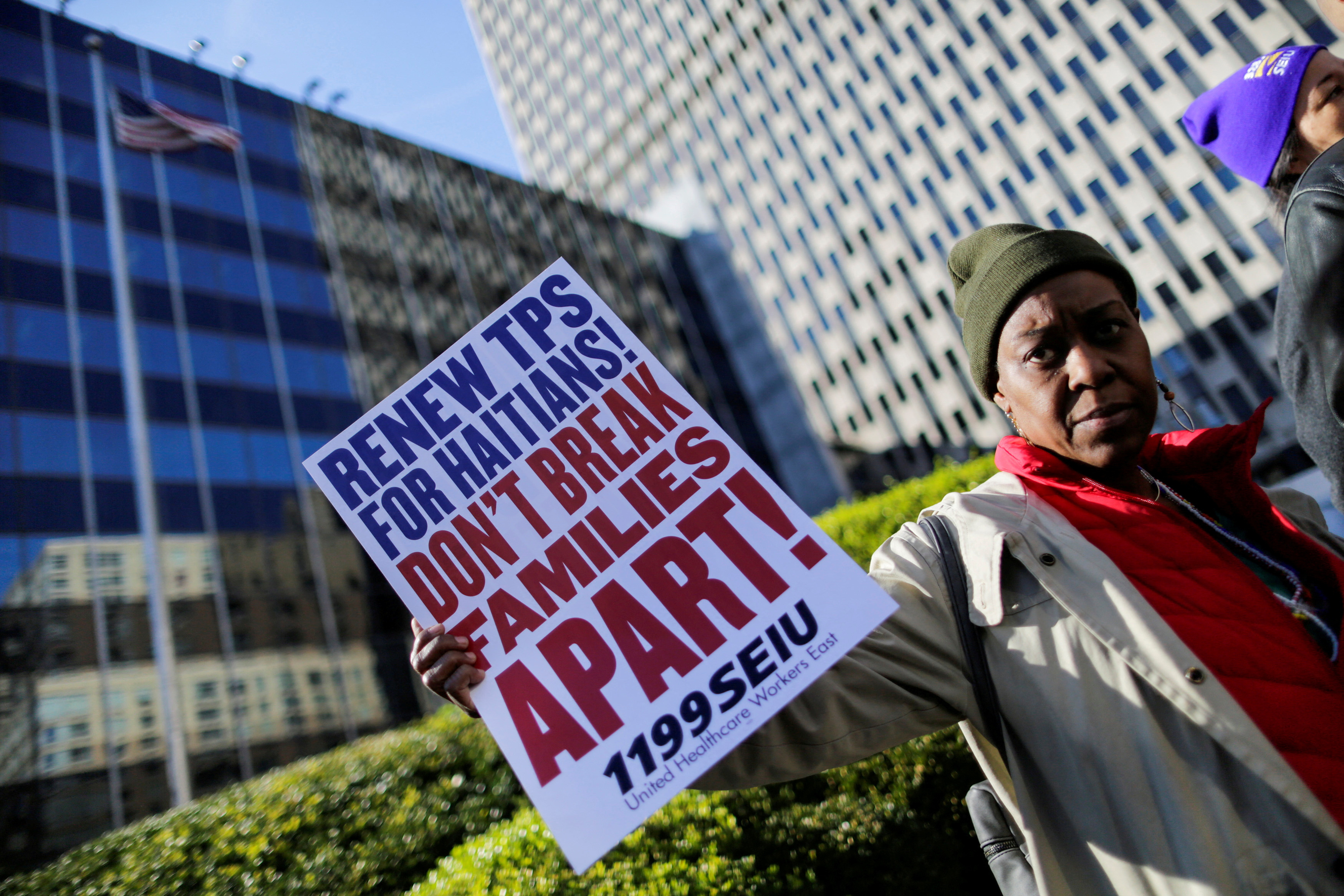Federal Judge Blocks Trump Admin"s TPS Termination, Cites "Racial Animus" Impact on Immigrants
In a landmark decision, a federal judge has halted the Trump administration"s efforts to terminate Temporary Protected Status (TPS) for immigrants from Nicaragua, Honduras, and Nepal. This ruling, made by a judge appointed by President Biden, underscores the complexities of immigration policy and the historical ramifications of such decisions. The judge argued that the administration"s rationale for ending TPS was rooted in "racial animus," drawing a stark comparison to the injustices of the Atlantic Slave Trade.
Background & Context
Temporary Protected Status is a humanitarian program established to provide refuge for individuals from countries experiencing significant turmoil, such as natural disasters or armed conflict. Initially enacted in the 1990s, TPS has offered a lifeline to thousands of immigrants, allowing them to live and work legally in the United States while their home countries recover. However, the Trump administration sought to roll back TPS designations for several nations, citing a belief that conditions had improved. Critics argued that this approach disregarded the ongoing instability and danger faced by many in these regions.
This recent ruling marks a significant moment in the ongoing debate over immigration policy in the United States. By spotlighting the alleged motivations behind the TPS termination, the judge"s decision reflects broader societal concerns about the intersection of race and immigration law. As previously reported, similar situations have arisen in various contexts, raising questions about the fairness and humanity of U.S. immigration practices.
Key Developments
The judge"s ruling specifically critiques the Trump administration"s justification for ending TPS by framing it as a product of racial bias. In the court"s opinion, the administration"s actions were not only unjust but also reminiscent of historical injustices, including the Atlantic Slave Trade, which forcibly displaced individuals based on race and ethnicity. This comparison is particularly poignant, given the long-standing discussions around race and systemic inequality in the United States.
The implications of this ruling extend beyond the immediate beneficiaries of TPS. By framing the termination of such protections in terms of racial animus, the decision may set a precedent for future immigration cases. Legal experts suggest that this ruling could inspire further challenges against similar policies that may disproportionately affect marginalized communities.
\n\n
Image for Federal Judge Blocks Trump Admin"s TPS Termination, Cites "Racial Animus" Impact on Immigrants
Broader Impact
The ruling has sparked a wave of reactions from advocacy groups, legal experts, and lawmakers. Proponents of TPS argue that the program is essential for protecting vulnerable populations and promoting humanitarian values in U.S. foreign policy. Organizations such as the American Civil Liberties Union (ACLU) have hailed the decision as a victory for justice and equality, emphasizing the need for policies that reflect compassion rather than prejudice.
Moreover, the ruling could have significant political ramifications. As the nation grapples with divisive immigration policies, this decision may galvanize support for reforming the TPS program and expanding protections for other immigrant groups. Observers note that the ongoing discourse around race and immigration will likely continue to shape policy discussions at both the state and federal levels.
What"s Next
As the legal landscape surrounding TPS continues to evolve, the Biden administration faces pressing questions about its immigration agenda. The administration has expressed intentions to uphold and expand protections for immigrants, signaling a potential shift from the previous administration"s policies. However, advocates urge the need for comprehensive immigration reform that addresses the root causes of displacement and instability in migrants" home countries.
In the coming months, legal experts anticipate further developments as the case progresses through the courts and as advocacy groups mobilize to support affected communities. The ruling may also prompt lawmakers to revisit legislation that impacts TPS and related immigration statuses, potentially leading to a more equitable framework for all immigrants. As the situation unfolds, stakeholders will be closely monitoring the implications of this ruling on the broader immigration discourse in the United States.

Image for Federal Judge Blocks Trump Admin"s TPS Termination, Cites "Racial Animus" Impact on Immigrants

![[Video] Federal officers deploy sting balls and flash grenades at Whipple Building](/_next/image?url=%2Fapi%2Fimage%2Fthumbnails%2Fthumbnail-1768340555229-vhfcc-thumbnail.jpg&w=3840&q=75)
![[Video] Crowd-control weapons used in Minneapolis as anti-ICE protesters attack police vehicle](/_next/image?url=%2Fapi%2Fimage%2Fthumbnails%2Fthumbnail-1768336302231-akxf7s-thumbnail.jpg&w=3840&q=75)

![[Video] Protests erupt in Minneapolis after ICE detains teenager, multiple arrests made](/_next/image?url=%2Fapi%2Fimage%2Fthumbnails%2Fthumbnail-1768331835371-z9ylqg-thumbnail.jpg&w=3840&q=75)


![[Video] Gunfire between Iraqi security forces and Sadr militias in Baghdad](/_next/image?url=%2Fapi%2Fimage%2Fthumbnails%2Fthumbnail-1768343508874-4redb-thumbnail.jpg&w=3840&q=75)
